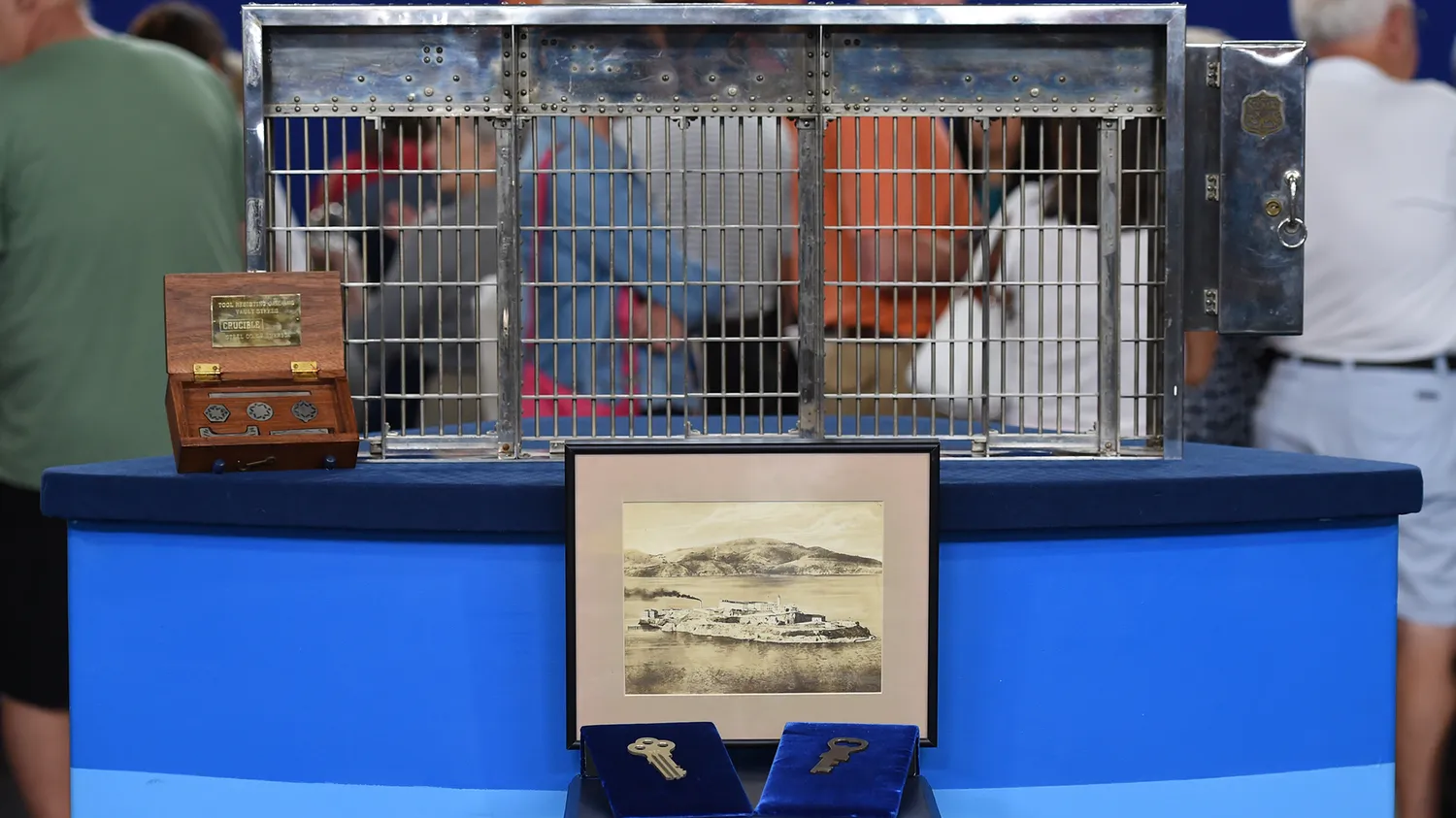Jail Time For Antiques Roadshow Couple: Unwitting National Treasure Crime

Table of Contents
The Antiques Roadshow Appearance and Subsequent Investigation
The couple, whose names have been withheld pending trial, brought a stunning ancient Roman statue to be appraised on Antiques Roadshow. The expert valued the piece at a staggering $500,000, praising its exquisite detail and historical significance. The couple claimed to have purchased the statue at a reputable auction house several years prior, believing it to be a legitimate acquisition. However, this seemingly innocent transaction soon spiraled into a complex legal battle.
The timeline of events unfolded as follows:
- 2018: The couple appears on Antiques Roadshow, receiving the appraisal.
- 2020: Authorities, alerted by an anonymous tip, begin investigating the statue's origins.
- 2021: Forensic analysis confirms the statue was looted from a protected archaeological site in Italy.
- 2023: The couple is charged with possession of stolen antiquities, facing potential jail time and substantial fines.
The Legal Ramifications of Owning Undocumented Artifacts
The legal complexities surrounding the ownership of antiquities are substantial. Many countries have strict laws designed to protect their cultural heritage from looting and illicit trafficking. These laws often criminalize the possession of undocumented artifacts, regardless of the owner’s knowledge of their illicit origins.
Key legal aspects include:
- UNESCO Conventions: International treaties like the 1970 UNESCO Convention on the Means of Prohibiting and Preventing the Illicit Import, Export and Transfer of Ownership of Cultural Property establish a framework for international cooperation in combating the illegal trade in cultural objects.
- National Laws: Individual countries have their own specific legislation concerning the import, export, and ownership of antiquities, often with severe penalties for violations. These laws often include provisions for the confiscation of illicitly obtained artifacts.
- The Burden of Proof: The onus often rests on the possessor to prove the legal acquisition of an artifact, making it challenging to defend against charges even in cases of unwitting possession.
The Couple's Defense and the Challenges of Proving Innocence
The couple's defense hinges on their claim of ignorance, asserting they had no knowledge of the statue's illicit origins when they purchased it. They plan to present documentation from the auction house as proof of a legitimate purchase. However, proving innocent ownership of undocumented artifacts poses significant challenges.
The difficulties include:
- Lack of Provenance: Establishing provenance, a detailed history of ownership, is crucial in verifying an artifact's legitimacy. Without a clear and unbroken chain of ownership, it is extremely difficult to prove legal acquisition.
- Challenges in Tracing History: Tracing the artifact's history back to its origin can be nearly impossible, particularly for older pieces. The lack of readily available records and the complex nature of the antiquities trade often hinder investigations.
- Authentication Issues: Even with purported documentation, authenticating the legitimacy of the purchase and the artifact itself can be a complex process, requiring expertise in art history and materials analysis.
The Broader Implications for Collectors and the Antiques Market
This case sends shockwaves through the antiques collecting community and the broader art market. It highlights the increased scrutiny collectors face and underscores the vital importance of due diligence in acquiring artifacts.
The consequences extend to:
- Increased Scrutiny: Collectors can expect increased scrutiny from authorities, leading to more thorough investigations into the provenance of acquired items.
- Importance of Due Diligence: Thorough research, including professional authentication and verification of provenance, is becoming increasingly vital for responsible collectors. Ignoring this due diligence increases the risk of legal repercussions.
- Potential for Stricter Regulations: This case may lead to stricter regulations and increased enforcement of existing laws concerning the acquisition and trade of antiquities.
Conclusion
The Antiques Roadshow crime highlights the significant legal risks involved in owning undocumented antiquities. The case serves as a stark reminder of the critical need for collectors to verify provenance and exercise due diligence when acquiring artifacts. Unwitting possession can lead to severe consequences, including jail time and substantial fines. Avoid becoming the next Antiques Roadshow crime statistic – always verify the provenance of your acquisitions. Responsible collecting practices are not merely ethical; they are essential for avoiding potentially devastating legal ramifications. Remember, thorough research is the key to safe and legal antique collecting.

Featured Posts
-
 Jeremie Frimpong Transfer Agreement Reached But No Club Contact Yet
May 21, 2025
Jeremie Frimpong Transfer Agreement Reached But No Club Contact Yet
May 21, 2025 -
 Mission Patrimoine 2025 Deux Sites Bretons Plouzane Et Clisson Restaures
May 21, 2025
Mission Patrimoine 2025 Deux Sites Bretons Plouzane Et Clisson Restaures
May 21, 2025 -
 The D Wave Quantum Qbts Stock Market Crash On Monday Causes And Effects
May 21, 2025
The D Wave Quantum Qbts Stock Market Crash On Monday Causes And Effects
May 21, 2025 -
 Screen Free Week With Kids A Practical Guide
May 21, 2025
Screen Free Week With Kids A Practical Guide
May 21, 2025 -
 Kaellmanin Nousu Kenttien Ulkopuolella Tapahtunut Kasvu Naekyy Maalinteossa
May 21, 2025
Kaellmanin Nousu Kenttien Ulkopuolella Tapahtunut Kasvu Naekyy Maalinteossa
May 21, 2025
